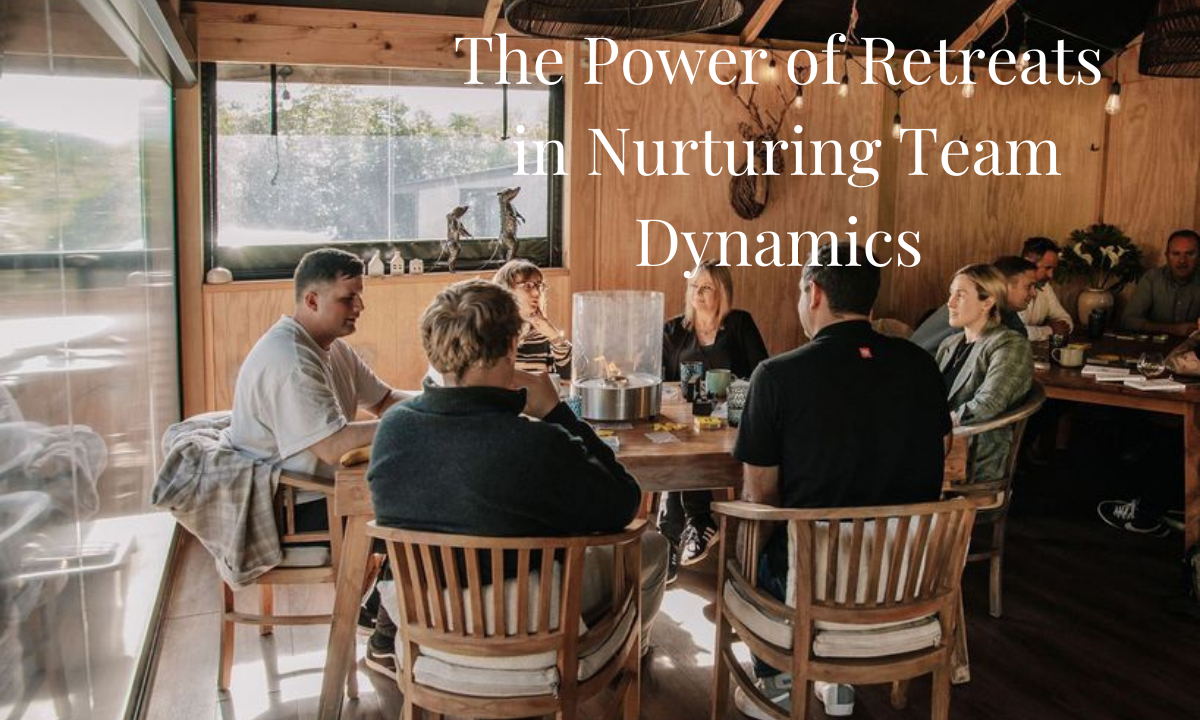
I’ve been writing. Hard. Every day. My publishing and marketing team have been driving me to the bone with book writing and planner planning and editing and rewriting and re-planning and – you get the drift. That said, Dream Plan Do Be and the planner Do it, Be it, are ready for printing in August and for sale in September.
In the rare moments of free time that I’ve had, I’ve been musing about the construction industry and other primary industries. And leadership. This ‘muse’ is very relevant to other managers in all industries and management roles, so don’t be put off from the focus on builders and blokes.
My ponderings have covered building, construction - all trades and aspects involved. Some of you will have heard me express that I like blokes. I know. I hate it when that pops out, but it often does while I’m on stage. Oops. Something about the norepinephrine making my tongue loose, during times of excitement and mid-performance. I digress. Perhaps because of my military background and love of the outdoors, or time spent in the pits supporting my brother the kart driver, or even that my father was a toolmaker and die maker and owned his own plastic injection moulding company, or the hours spent working on cars and building projects with him. End result = I have an affinity for blokes. I love working with tough men. Tough women scare me a little, so we’ll just leave that there.
My Canada Musing - Blokes – Construction – Leadership. Recently I spoke at the NZ Certified Builders conference in Wellington. To be certified, or certifiable; is not generally an aspiration in other parts of our society, however, the folks I met at this conference seemed just fine.
In the weeks since that opportunity, I have received several phone calls and emails from some of the men and women who attended my session. The topic was ‘what is leadership?’ I covered a vast range of material, including neuroscience, personalities, and the need for deep nurture. We concentrated on the detriment of cortisol (stress), and on our ability to focus and pay attention to detail. Business owners shared their frustration with the lack of consistency in performance and quality of work from their teams. What to do, and how to do it?
We explored a cause-and-effect model. When we speak to our team, our body language, pitch and tone (frustrated – aggressive), triggers the ‘fight or flight’ response in our team, physically shutting down their ability to hear us; driving them into a further state of stress through our raised voice, the end result systematically causing their performance to decrease even further. The same happens when we yell at the kids in the morning.
I talked about dopamine, related to pleasure, and the unhealthily high levels of this drug in our young people. Dopamine is more addictive than nicotine and alcohol and is released in excessive quantities during gaming and during high social media interaction. It can be a major cause of poor sleep quality (dopamine inhibits the making of your sleep drug melatonin), delivering - each and every morning -unmotivated, tired and inattentive team members. We then see a link to an increase in anxiety and depression.
The detriment of phones on sites was skimmed over, and the distraction to our teams that phones cause, reducing their attention to detail and personal safety.
I also touched on anxiety and depression in men, and the leadership needed to nurture that. The new skills needed to lead the current generation of youngsters. And how we might learn to lead these ‘modern’ behaviours and problems.
Perhaps it was my bluntness, my energy, or my potty mouth, but the general feedback has been grand. I have booked three training programmes for multiple companies and am delighted to be going to visit Northland, Rotorua and Hamilton in the last quarter of this year. Owners are sharing my costs between them – what clever blokes.
Though a great outcome, that wasn’t the driver for my ‘musings’ today.
The men and women I’ve spoken to expressed the need for programmes, or mentoring and/or coaching, that defined and grew leadership rather than management. I quite like this statement from the Harvard School of Business:
Management - the processes are about planning, budgeting, staffing, clarifying jobs, measuring performance, and problem-solving when results did not go to plan.
Leadership is very different - it is about aligning people to the vision, that means buy-in and communication, motivation and inspiration.
I’ve spent time googling courses available within NZ for the construction and other ‘front-line’ or labour-intensive industries i.e., dairy, production, forestry and other primary sectors.
The market abounds with management programmes. Day courses, 2-3-day programmes – come along and you will leave as a manager. Bollocks. And I note, most of these courses are delivered by trainers who have never stepped foot on a build site, nor ever owned their own business.
Since leaving the military, much of my working life has been around the edge of, or involved with those industries that share both hard work and a hard environment. My observation is this. Most building or primary industry business owners:
- Are/were builders (put in here the trade related to you).
- Work damned hard to produce and provide quality builds or products.
- Have strong managerial skills; having learned to forecast, run cashflow, order, juggle, run rosters, inventory and product lines.
- Are passionate about their teams, teams, workers and their business.
- Are stressed and ready to pop - largely fueled by the current economic environment and rapid post-COVID growth that has tailed the sheer terror of surviving 2020.
- Are struggling to maintain a semblance of balance between family, social, and commitments outside of their company.
I also observe the following to be a current reality. Some building or small primary business owners:
(Tick off those that express in part or whole, something you are familiar with.)
- Struggle with communication. Not the direct, blunt, to the point bit - they have that bit nailed. But the softer piece around culture, expectations of behaviours, wellbeing and checking in on the mental wellness of their teams. (I call this ‘Soft Strength’ and my next book will delve into the meaning of this term and growing this attribute.)
- Wrestle with keeping their frustration in hand when dealing with silly mistakes that ‘shouldn’t’ be made. Apprentices and qualified builders doing stupid things.
- Struggle with their young team members’ distracting use of cell-phones on site.
- Battle with tired workers who haven’t gone to bed early enough the night before to be useful at work.
- Grapple with teams using weed as a normal part of their lives and culture.
- Contend with apprentices who aren’t motivated to complete their study, but constantly seek pay increases.
- Are faced with inconsistency in performance. No matter how they explain that the ‘shower plate’ must go in first, one or two individuals forget every other time. The ensuing discussion goes from nice to wild, pretty quickly.
- Find they have to repeat themselves, do it themselves, or don’t get listened to unless they have ‘torn a hole’.

Doing a job vs. being inspired by the job
When those in positions of formal authority such as team leaders, site managers, supervisors and other management roles, are disengaged, they have to depend on their title and authority to manage not only things but people. They don’t have the skills to inspire or motivate, so they tell and direct. The, ‘because I’m the boss’ piece.
When people are “managed” they become disengaged.
When people are “led” they become highly motivated and engaged.
Unfortunately, many organisations and people are over-managed and under-led. This isn’t a personal reflection on business owners, it’s a direct reflection of the training market in New Zealand; price and availability.
Big business invests in sending senior leaders to $25k a week programmes, executive retreats, Masters in Business qualifications, and $75k year-long programmes. All available and being delivered in New Zealand right now. But the challenge; where do we, as small business owners, find the money and the time to invest in growing us?
The returns from leading vs. managing
What we do know is that workers are on average 40% more productive when led by an engaged leader. Why? Leaders have a greater ability to positively influence and engage their team members at a higher level.
It’s common for many small business owners, team leaders, supervisors, and managers to be promoted from within a company, or break out and start their own company. Sometimes we hire from the outside bringing in new ideas and thoughts on work ethics and acceptable behaviours, not all of which compliment or align with our own.
“Many business owners, or site managers, have never received any type of formal leadership development training. They’re always expected to lead, often without ever being taught how to lead. According to international research, 87% of managers wish they had more training before becoming a manager.
Leadership development allows you to develop the leaders of your front- line workforce, so you can tap into your organisation’s biggest asset – your people. Leadership impacts the character and culture of an organisation, which in turn affects everything else. Leadership, or the lack of it, affects morale, employee engagement, teamwork, communication, customer service, employee turnover, and productivity.
“As a leader, and ultimately a mentor, you have the responsibility and privilege to grow those around you and help them become their absolute best.” - Mike Davis of BlueCollar Leadership and Supervision, USA.
So how do we effectively grow high performance, consistent work quality and attract and keep men and women who love their work and love our company?
Let’s talk. Why don’t you join with some other small business owners in your area and touch base with me?
Let’s explore what it should feel like on your work sites, within your team, every day.
Calm, controlled, joyful, with laughter, seekers of excellence, energised, invigorated… are some words and phrases that come to mind.
Knowing what it should feel like to be a worker on one of your sites will lead us to the behaviours we will need to display within our teams. This leads us to what’s acceptable and what’s not. Our culture piece. How we speak to each other, how we influence great behaviours and reduce those behaviours not valued.
Know the science and detriment of stress and aggression, understand the personalities of the men and women you lead. How best to engage each as an individual? We explore what you, as the head honcho, have to deliver. How you act, communicate, delegate, make and articulate decisions, and most importantly, how you share your vision to the team surrounding you.
Remember you are the only ‘hero’ that some of these young men and women have had. You are a person who has hunted down their dreams and successfully owns the business. (Please don’t tell a young person how much hard work that really was! Let them remain ignorant and naive for a little longer 😊)
Your legacy
If you own a business, manage a business, or work as a supervisor within a business, the responsibility to lead, inspire, shape and grow healthy high performing teams is yours.
“No man is capable of self-improvement if he sees no other model but himself." Conrado I. Generoso
You are the legacy. Challenge statement – people reflect the attitudes, behaviours and culture of the people who manage them. If you’ve ticked some of the experiences above, then look inwards. What is it we need to grow in you that will inspire people to follow and model their behaviours on? I’m looking forward to helping you with that.
Email me now sally@sallyduxfield.com to chew the cud and solve the problems of the world. Or ring 021 7255 93 or 06 367 8438.



